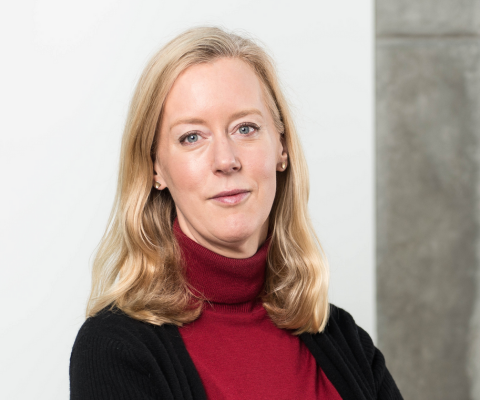Karen Bakker
UBC researcher applies digital tools to pressing environmental problems
Karen Bakker, professor of geography at the University of British Columbia, leads the Smart Earth Project – an effort to map how the tools of the digital age are being used to solve pressing environmental challenges such as climate change and biodiversity loss.
It’s transformational research at the intersection of digital transformation and environmental governance; work that garnered Dr. Bakker the 2022 Guggenheim Fellowship, and was featured in her recent book: The Sounds of Life: How Digital Technology is Bringing Us Closer to the Worlds of Animals and Plants.
It’s also highly interdisciplinary research. “I’m trained in both the natural and social sciences and I integrate these various perspectives in the different projects that I do,” she says.
There are applied components of her research – which usually focuses on water issues, including water security governance – and more overarching work, “where I take a step back and look trends across many different fields of academic inquiry, from research to innovation.”
A digital revolution in environmental governance is underway, she says, which includes a transition from scarcity of data to the hyper-abundance of data, and new tools such as AI algorithms. These advances enable more real-time environmental monitoring, which means conservationists can more effectively detect, limit and even prevent environmental harm.
“For example, scientists have used digital bioacoustics to provide real-time location information for highly endangered North Atlantic right whales; this information is used to create mobile Marine Protected Areas in which ship’s captains have to slow down or avoid whale zones altogether. This reduces ship strikes, which were previously a significant cause of whale injury and mortality.”
“Another example is using satellites to detect methane plumes in real time. So we now know where the top methane emitters are in the world at any given time. And if there’s political will, we could even make the polluter pay in real time for so-called ‘fugitive emissions’ that were previously not tracked.”
But new tools, she notes, also come with risks. “Any technology can be used as a tool or a weapon. The same technologies I’m talking about could be used for precision hunting. So it’s very important that we create governance frameworks that constrain these risks, yet allow these technologies to be used for biodiversity protection and climate change mitigation.”
On winning the Guggenheim, Dr. Bakker says there’s something special about the award. “Academic work can sometimes take years to germinate,” she says. “And what the Guggenheim often does is highlight work that is just about to flower, to use a biological metaphor. And so I think the Guggenheim is also recognizing these long gestation projects that take a while to come to fruition but are truly trying to say something new and make both a scholarly contribution and a contribution to the public good or public knowledge. That, I think, is the lovely mix they have.”

